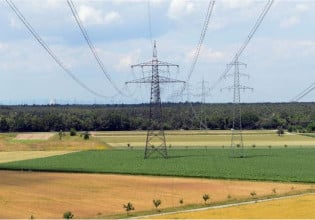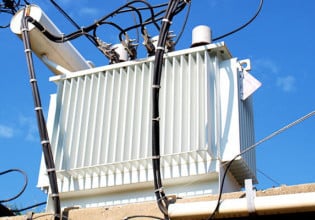Researchers from Hokkaido University, the University of Tokyo, and Nagoya University have devised a simulation that they say clarifies the economic impact of the demand response model of the power grid.
The output of renewable energy sources such as photovoltaic generation is intermittent and tends to fluctuate. Therefore, the power system with renewable sources can be seen as a large-scale complex system with uncertainty, according to the researchers.
An energy management system is needed to stabilize and control the balance of supply and demand of electricity. Recently, energy management systems have been actively researched in looking towards the liberalization of power and the adoption of smart meters that can visualize the power consumption.
Koichi Kobayashi, associate professor at Hokkaido University, Shun-ichi Azuma, professor at Nagoya University, and Nobuyuki Yamaguchi, associate professor at Tokyo University of Science developed demand response analysis and control technologies that focus on the variation of power generation costs over time.
The researchers defined demand response noting that"when the supply-demand balance is tight, consumers conserve the power consumption and change the power consumption pattern according to the setting of the electricity price or the payment of incentives (rewards)." The cost-effectiveness of this type of demand response has not been analyzed.
The introduction of the power aggregator that controls the power consumption of consumers has gotten much attention. Aggregators trade power between electric power companies and consumers, instead of having consumers trade directly with electric companies.
Aggregators manage hundreds of consumers and control their power consumption by responding to electric company requests. The introduction of aggregators makes the balancing supply and demand for the whole power system easier, the researchers noted.
During a day, the cost-effectiveness of demand response varies depending on the demand and supply of electricity. The researchers expect that this fluctuation becomes larger by the spread of renewable energy.
Cost Effectiveness of Demand Response Not Analyzed
Demand response is intended to maintain the balance between supply and demand, and its cost-effectiveness has not been examined.
However, in the future, the researchers contend that it will be important to assess the economics of demand response, focusing on the cost of power generation and the cost of adjusting power consumption at each time.
Furthermore, the group of researchers says that the development of control strategies is needed to maximize the economic value of demand response.
In order for demand response to create economic value, the unit price of power generation needs to vary considerably during the day. So, the researchers hypothesize that if the difference between the highest and lowest generation costs is large compared to the adjustment costs, then demand response produces economic value.
In this research, they specifically looked at the condition in which demand response produces economic value with the difference between the highest price and the lowest price of more than twice the adjustment cost. It is thought that this simple condition can also be used as a guide to calculate the rewards to consumers.
Next, to maximize the economic value, they devised a control method for demand response based on model predictive control in which the optimal control strategy was found based on the prediction from a mathematical model. In the simulation using the proposed method of predictive control, the researchers used data from the Japan Electric Power Exchange as a forecast value of the power generation cost and power consumption.
According to the researchers, their proposed approach provides a fundamental result for the design of demand response and aggregators such as retailers.
Reference Source
Miyazaki, K., Kobayashi, K., Azuma, S., Yamaguchi, N., Yamashita, Y. Design and Value Evaluation of Demand Response Based on Model Predictive Control. IEEE Transactions on Industrial Informatics, June 3, 2019. DOI: 10.1109/TII.2019.2920373






